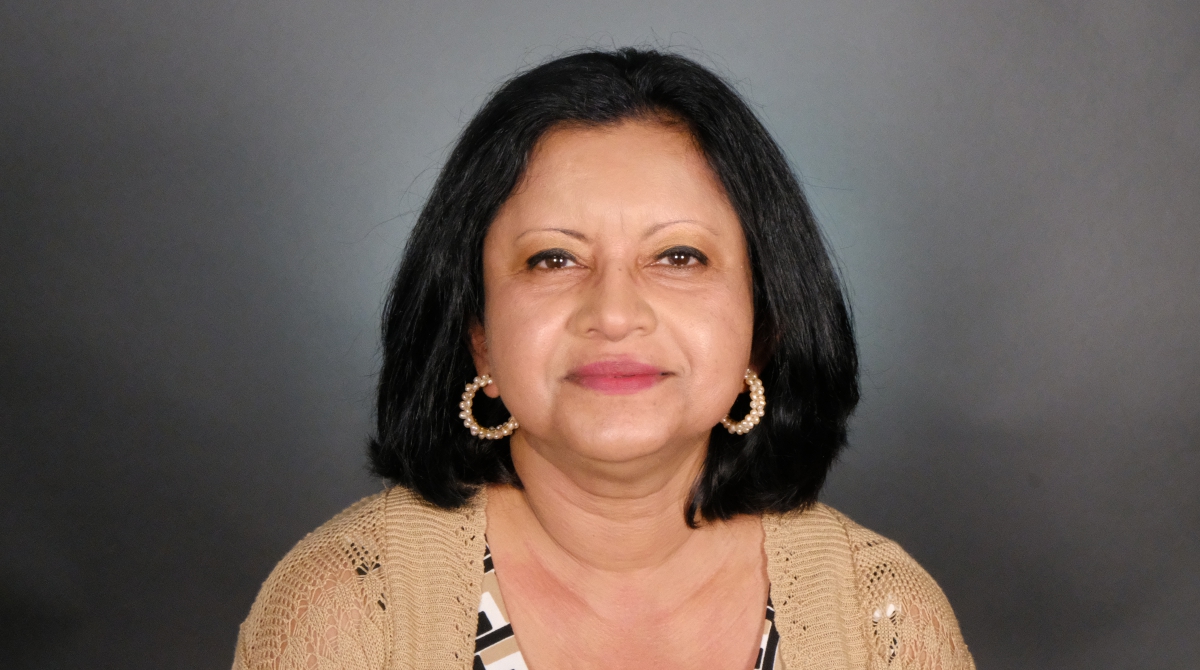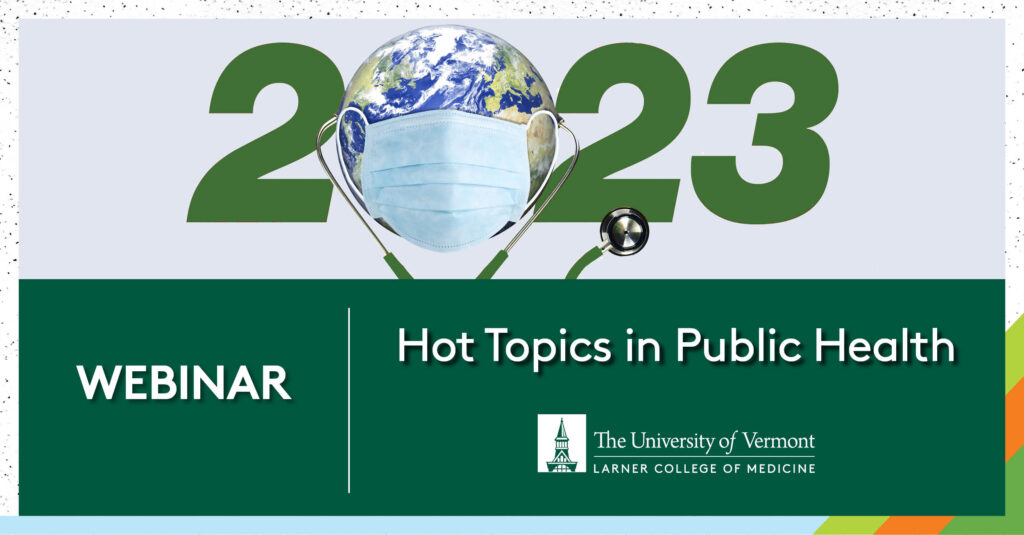Dr. Shamima Khan, Assistant Professor in the UVM Larner College of Medicine Public Health program, brings a rich background to her role. While studying Clinical Laboratory Sciences as an undergraduate, which gave her a strong foundation in the clinical aspects of medical care, she found herself intrigued by how medicine functions not only as a science, but as a system. Understanding the financial and administrative side of medicine became Dr. Khan’s focus, leading her to pursue a Master’s degree in Gerontology with a specialization in Nursing Home Administration, then an MBA, and finally, PhD in Pharmacy Administration/Social and Administrative Sciences.
“The Social/Administrative Sciences aspect of my academic background provides me with quantitative expertise, which is an essential component of public health, health economics, and health policy,” she explains.
Teaching Epidemiology I and Biostatistics I, Dr. Khan is energized by what she describes as a rigorous and engaging online learning environment in the UVM Public Health program. While she was first exposed to online learning in her graduate school days, Dr. Khan says UVM is where she’s really jumped feet first into asynchronous online education.
“After joining the UVM MPH program, I have become totally immersed in online education,” she says. “I truly believe that the potential for online education is tremendous, given that it frees us from geographical constraints and gives students the opportunity to pursue education from anywhere and at any time, and I truly believe that is possibly the future direction of education.” Dr. Khan is looking forward to developing courses in financial management and quantitative sciences and helping students develop basic academic writing and research skills.
Quantitative Public Health Research in Action: Understanding the prevalence of obesity in the U.S.
In a recent Hot Topics in Public Health panel discussion with public health educators and experts from The Robert Larner College of Medicine at UVM, Dr. Khan shared research into the state of obesity in the U.S., a topic she has been actively involved in since her obesity prevention work with the Public Health Association of New York City (PHANYC).
Dr. Khan presented data collected through the Behavioral Risk Factor Surveillance System from 2011 through 201 that shows an escalating prevalence of obesity throughout the U.S. According to Dr. Khan, “the current state of obesity has reached the point where many public health professionals, as well as physicians, are saying that obesity is the biggest threat to our healthcare system as well as our economic system.”
What does that look like? The data shows obesity rates exceeding 20% in every state (where in 2011, eleven states had rates under 20%), with rates between 35%-40% in seventeen states, and 40% in two states. With the CDC advising that obesity increases the risk of heart disease, type 2 diabetes, breathing problems, osteoarthritis, and gallstone and gallbladder disease in adults, Dr. Khan offered a sobering assessment: “The situation is pretty dire.”
“A healthy conversation about what to do about obesity has to happen.”
Dr. Shamima Khan, Assistant Professor UVM Larner College of Medicine Public Health Program
For Dr. Khan, “healthy” is a key qualifier that public health officials need to prioritize when discussing obesity. Because people struggling with obesity often face social stigma, it’s critical that public health and medical professionals frame the conversation about obesity interventions with the understanding that words matter – and too often, are a source of harm and shame. Obesity, after all, is a public health issue that impacts personal health, with causes that are closely related to social determinants of health that are often beyond any one individual’s capacity to control or overcome without targeted interventions and support.
While obesity remains a significant health concern in every state, Dr. Khan has hope – and a prescription for change. “To meet these challenges,” she says, “we need a strong public health workforce, which in turn requires new students to train in the field. The UVM Public Health program is ready to meet the needs of the future!”





